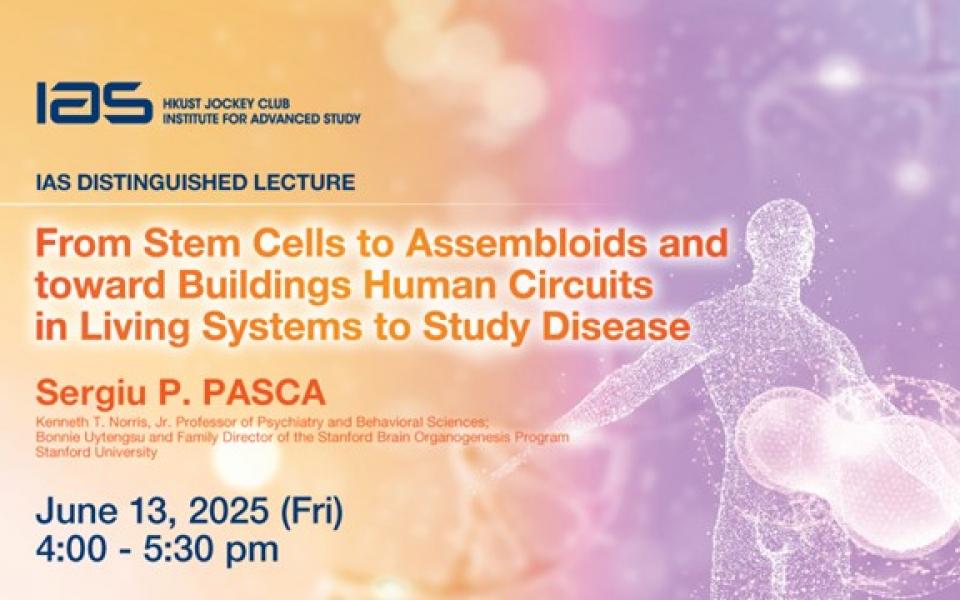IAS Distinguished Lecture - From Stem Cells to Assembloids and toward Buildings Human Circuits in Living Systems to Study Disease
Supporting the below United Nations Sustainable Development Goals:支持以下聯合國可持續發展目標:支持以下联合国可持续发展目标:
Abstract
A critical challenge in understanding the programs underlying the development, assembly and dysfunction of the human brain is the lack of direct access to intact, functioning human brain tissue for direct investigation and manipulation. This lecture will describe efforts in the speaker's laboratory to build functional cellular models and to capture previously inaccessible aspects of human brain development and dysfunction. To achieve this, the speaker and his research team have pioneered the use of instructive signals to derive, from pluripotent stem cells, self-organizing 3D tissue structures called regionalized neural organoids that resembles domains of the developing central nervous system. They have shown that these cultures, such as the ones resembling the cerebral cortex, recapitulate many features of neural development, can be derived with high reliability across dozens of cell lines and experiments, and can be maintained for years in vitro to capture advanced stages of neural and glial maturation and function. To model complex cell-cell interactions, the speaker and his research team developed assembloids and demonstrated their use in modeling cell migration, formation of neural circuits and disease processes. To advance maturation and circuit integration of organoids, they introduced a transplantation paradigm and demonstrated that engrafted human neurons can respond to sensory stimulation in the animal and can drive reward-seeking behavior therefore enabling behavioral readouts from patient-derived cells. Lastly, this lecture will illustrate how these methods can be combined with modern neuroscience tools to study neuropsychiatric disorders and develop therapeutics.
About the Speaker
Prof. Sergiu P. PASCA completed his postdoctoral research fellowship in neuroscience at Stanford University in 2013, where he developed a strong foundation in neurobiology. He is renowned for his groundbreaking work creating and developing stem cell-based models of the human brain to gain insights into neuropsychiatric disease. His lab was the first to develop and name "assembloids": multi-unit self-organizing structures created in 3D cultures that allow for the study of human neural circuits and system functions in vitro.
Prof. Pasca is a pioneering neuroscientist and stem cell biologist, holding the Kenneth T. Norris Endowed Professorship in Psychiatry and Behavioral Sciences at Stanford University. He founded and leads the Stanford Brain Organogenesis Program as the Bonnie Uytengsu and Family Founding Director. He is part of the Stanford Neurosciences Institute and Stanford Bio-X. He is also a fellow of the ChEM-H Institute at Stanford.
Prof. Pasca has received numerous prestigious awards, including the Eva King Killam Research Award from the American College of Neuropsychopharmacology, recognition as a finalist for the Blavatnik Award in Life Science from the Blavatnik Foundation, the Chica and Heinz Schaller Foundation Award in Translational Neuroscience from the Federation of European Neuroscience Societies, and the ISSCR Momentum Award from the International Society for Stem Cell Research.
For Attendees' Attention
Seating is on a first come, first served basis.
